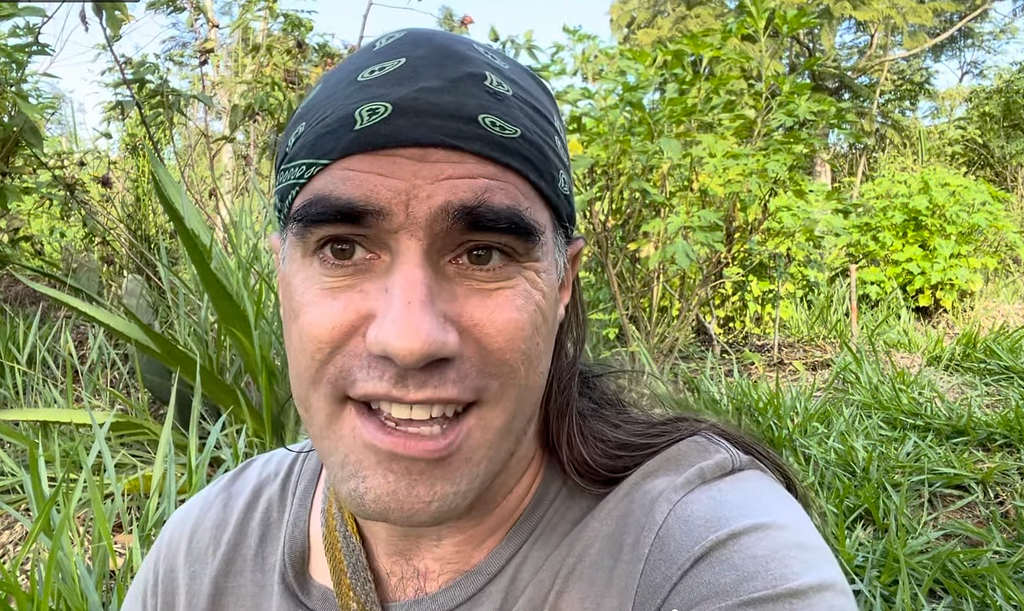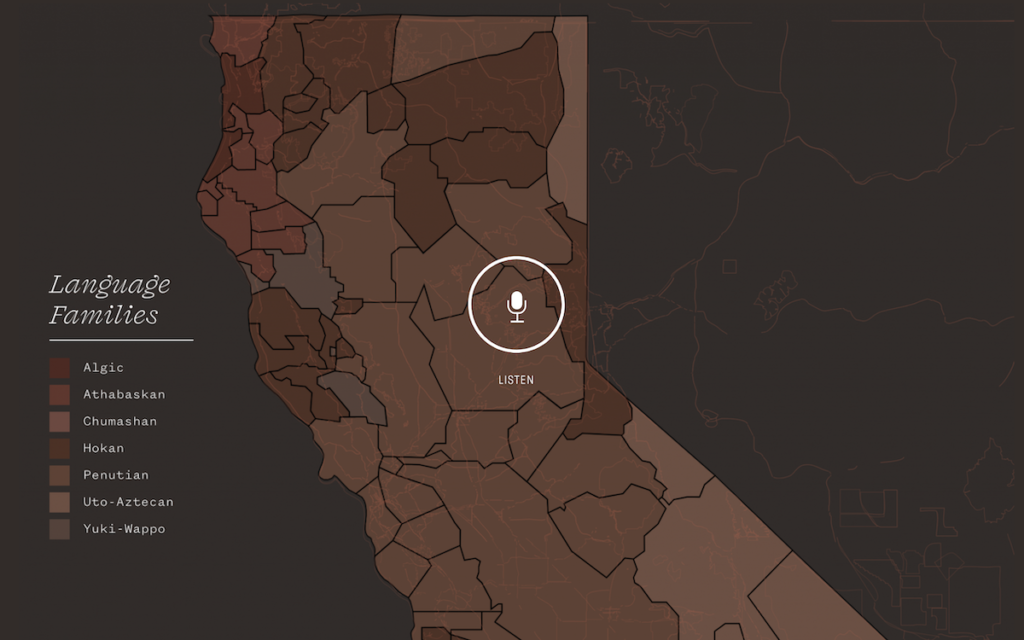
By: The Posts Author | Posted on: 4 Dec 24
Hi everyone, my name is Joe Brewer and today I want to share with you some of my observations about the problematic framing of the climate discourse.Now some of you may remember that a long time ago in my life I worked with George Lakeoff and helped to extend his understandings of cognitive linguistics and frame analysis to work with social movements around the world and that I did a lot of frame analysis around the sustainable development goals and what’s wrong with them and around basic economic ideas, the framing of global warming and various other topics, things that
Hi everyone, my name is Joe Brewer and today I want to share with you some of my observations about the problematic framing of the climate discourse.Now some of you may remember that a long time ago in my life I worked with George Lakeoff and helped to extend his understandings of cognitive linguistics and frame analysis to work with
By: The Posts Author | Posted on: 18 May 23
As Angel Eduardo writes, the word woke “has lost all useful meaning when it comes to communication between people on opposite sides of the culture war.” We do, however, need… View Post The post Compassionism appeared first on Areo.
As Angel Eduardo writes, the word woke “has lost all useful meaning when it comes to communication between people on opposite sides of the culture war.” We do, however, need… View Post The post Compassionism appeared first on Areo.
By: The Posts Author | Posted on: 20 Dec 22
Few things are as multifaceted or complex as personal identity. Yet, numerous social media posts and newspaper articles seem to suggest that we can somehow capture our unique individuality in… View Post The post Labels: The Good, the Bad and the Downright Ugly appeared first on Areo.
Few things are as multifaceted or complex as personal identity. Yet, numerous social media posts and newspaper articles seem to suggest that we can somehow capture our unique individuality in… View Post The post Labels: The Good, the Bad and the Downright Ugly appeared first on Areo.
By: The Posts Author | Posted on: 16 Dec 22
When I sat down to write my first piece for Queer Majority, I knew it would be difficult. I wanted to grow the queer movement by making it more welcoming,… View Post The post The Identifier Problem appeared first on Areo.
When I sat down to write my first piece for Queer Majority, I knew it would be difficult. I wanted to grow the queer movement by making it more welcoming,… View Post The post The Identifier Problem appeared first on Areo.
By: The Posts Author | Posted on: 9 Dec 22
When I moved to the United States as a teenager, I couldn’t speak much English. I struggled to have basic conversations, even though I had studied the language for years… View Post The post Maricón: What’s In a Name? appeared first on Areo.
When I moved to the United States as a teenager, I couldn’t speak much English. I struggled to have basic conversations, even though I had studied the language for years… View Post The post Maricón: What’s In a Name? appeared first on Areo.

By: The Posts Author | Posted on: 8 Dec 20
Using Google Ngram, Fisher found that the use of the phrase “long-term” has declined since the 01990s. When we talk “long,” how long do we mean? Multiple horizons all compete for real estate in one word. MIT Knight Science Journalism Fellow Richard Fisher doesn’t mind, though, seeing opportunity in language’s affordances and flexibility to play, explore, unpack: his Substack newsletter, The Long-termist’s Field Guide, just introduced “Long-terminology,” a fun recursive tour of vocabulary words that offer handles with which one can grapple big ideas and their attendant practices and cultures. His entry on word “long” and its different radii explores the
Using Google Ngram, Fisher found that the use of the phrase “long-term” has declined since the 01990s. When we talk “long,” how long do we mean? Multiple horizons all compete for real estate in one word. MIT Knight Science Journalism Fellow Richard Fisher doesn’t mind, though, seeing opportunity in language’s affordances and flexibility to play, explore, unpack: his Substack newsletter,

By: The Posts Author | Posted on: 8 Dec 20
Using Google Ngram, Fisher found that the use of the phrase “long-term” has declined since the 01990s. When we talk “long,” how long do we mean? Multiple horizons all compete for real estate in one word. MIT Knight Science Journalism Fellow Richard Fisher doesn’t mind, though, seeing opportunity in language’s affordances and flexibility to play, explore, unpack: his Substack newsletter, The Long-termist’s Field Guide, just introduced “Long-terminology,” a fun recursive tour of vocabulary words that offer handles with which one can grapple big ideas and their attendant practices and cultures. His entry on word “long” and its different radii explores the
Using Google Ngram, Fisher found that the use of the phrase “long-term” has declined since the 01990s. When we talk “long,” how long do we mean? Multiple horizons all compete for real estate in one word. MIT Knight Science Journalism Fellow Richard Fisher doesn’t mind, though, seeing opportunity in language’s affordances and flexibility to play, explore, unpack: his Substack newsletter,

By: The Posts Author | Posted on: 26 Sep 20
A six-part podcast from Emergence Magazine explores the plight of four Indigenous languages spoken in California—Tolowa Dee-ni’, Karuk, Wukchumni, and Kawaiisu—among the most vulnerable in the world: “Two centuries ago, as many as ninety languages and three hundred dialects were spoken in California; today, only half of these languages remain. In Episode One, we are introduced to the language revitalization efforts of these four Indigenous communities. Through their experiences, we examine the colonizing histories that brought Indigenous languages to the brink of disappearance and the struggle for Indigenous cultural survival in America today.”
A six-part podcast from Emergence Magazine explores the plight of four Indigenous languages spoken in California—Tolowa Dee-ni’, Karuk, Wukchumni, and Kawaiisu—among the most vulnerable in the world: “Two centuries ago, as many as ninety languages and three hundred dialects were spoken in California; today, only half of these languages remain. In Episode One, we are introduced to the language revitalization

By: The Posts Author | Posted on: 15 Feb 20
The emergency is about the urgency to act. The crisis is about the need to transform. The meta-crisis is the tenacity of our inertia.Continue reading on Medium »
The emergency is about the urgency to act. The crisis is about the need to transform. The meta-crisis is the tenacity of our inertia.Continue reading on Medium »

By: The Posts Author | Posted on: 14 Feb 20
The emergency is about the urgency to act. The crisis is about the need to transform. The meta-crisis is the tenacity of our inertia.Continue reading on Medium »
The emergency is about the urgency to act. The crisis is about the need to transform. The meta-crisis is the tenacity of our inertia.Continue reading on Medium »







